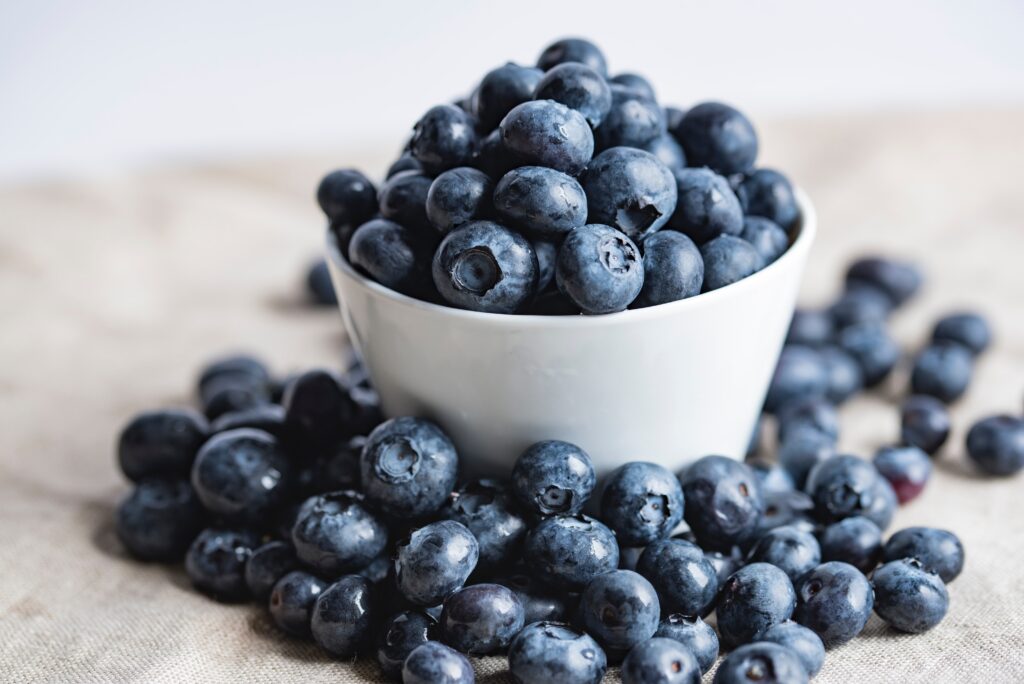Berries are not only delicious but also pack a nutritional punch that makes them a valuable addition to a balanced diet. From their vibrant colors to their rich antioxidant content, berries offer a wide array of health benefits that positively impact various aspects of well-being. In this comprehensive guide, we’ll delve into the nutritional profile of different berries and explore the evidence-backed health benefits associated with their consumption. Followings are the some Health benefits of Eating Berries recommended by Mohit Tandon Burr Ridge :
1. Nutritional Composition of Berries
Before delving into the specific health benefits, it’s essential to understand the nutritional composition of berries. Berries are a diverse group of fruits, each with its unique combination of vitamins, minerals, fiber, and antioxidants. This section will provide an in-depth analysis of the nutritional content of popular berries, including strawberries, blueberries, raspberries, and blackberries.
- Strawberries: Rich in vitamin C, manganese, and folate, strawberries are also a good source of dietary fiber and antioxidants such as anthocyanins and quercetin.

- Blueberries: Packed with anthocyanins, vitamin K, vitamin C, and manganese, blueberries are known for their potent antioxidant properties that contribute to various health benefits.

- Raspberries: High in dietary fiber, vitamin C, manganese, and antioxidants like quercetin and ellagic acid, raspberries offer a combination of nutritional benefits.

- Blackberries: Blackberries are rich in vitamin C, vitamin K, manganese, and fiber. They also contain anthocyanins and other antioxidants with potential health-promoting effects.

2. Antioxidant Power and Disease Prevention
Berries are renowned for their high antioxidant content, which plays a crucial role in neutralizing free radicals in the body. Free radicals are unstable molecules that can cause cellular damage, leading to various chronic diseases and aging. This section will explore:
- Anthocyanins and Flavonoids: The specific antioxidants found in berries and their role in preventing oxidative stress.
- Cancer Prevention: The potential anticancer properties of berries, supported by studies highlighting their ability to inhibit the growth of cancer cells.
- Heart Health: How antioxidants in berries contribute to cardiovascular health by reducing inflammation, improving cholesterol levels, and supporting healthy blood pressure.
3. Cognitive Benefits: Boosting Brain Function
Emerging research suggests that regular consumption of berries may have cognitive benefits, supporting brain health and potentially reducing the risk of age-related cognitive decline. This section will cover:
- Improving Memory: Studies indicating that the antioxidants and polyphenols in berries may enhance memory and cognitive function.
- Protecting Against Neurodegenerative Diseases: The potential role of berries in protecting against diseases like Alzheimer’s and Parkinson’s through their anti-inflammatory and neuroprotective properties.
4. Managing Diabetes: Impact on Blood Sugar Levels
For individuals with diabetes or those at risk of developing the condition, berries offer a sweet yet low-glycemic alternative that can positively influence blood sugar levels. This section will discuss:
- Fiber Content: How the fiber in berries slows down the absorption of sugar, helping to regulate blood glucose levels.
- Insulin Sensitivity: The potential of berries to improve insulin sensitivity, reducing the risk of type 2 diabetes.
5. Weight Management and Satiety
Berries can be a valuable addition to a weight management plan due to their low calorie and high nutrient density. This section will explore:
- Fiber and Fullness: The role of dietary fiber in berries in promoting feelings of fullness, potentially reducing overall calorie intake.
- Metabolism Boost: Some studies suggest that certain compounds in berries may positively influence metabolism, contributing to weight management.
6. Anti-Inflammatory Properties
Chronic inflammation is a common factor in many diseases, including cardiovascular disease, diabetes, and arthritis. Berries, with their rich array of antioxidants and anti-inflammatory compounds, may play a role in mitigating inflammation. This section will cover:
- Reducing Inflammatory Markers: Evidence from studies demonstrating the ability of berries to lower inflammatory markers in the body.
- Joint Health: The potential of berries, particularly those with high levels of anthocyanins, in supporting joint health and reducing inflammation associated with arthritis.
7. Digestive Health: Fiber and Gut Microbiota
Berries are an excellent source of dietary fiber, a nutrient crucial for maintaining a healthy digestive system. This section will discuss:
- Fiber and Regularity: How the fiber content in berries supports regular bowel movements and prevents constipation.
- Gut Microbiota: The role of berries in promoting a diverse and healthy gut microbiota, which is essential for overall digestive and immune health.
8. Skin Health: Radiant Complexion from the Inside Out
The antioxidants and vitamins found in berries contribute to skin health by protecting against oxidative stress and promoting collagen production. This section will explore:
- Antioxidants and Aging: The role of antioxidants in berries in reducing oxidative stress and slowing down the aging process.
- Collagen Production: How certain nutrients in berries support collagen synthesis, contributing to skin elasticity and a youthful appearance.
9. Eye Health: Nutrients for Vision Protection
Berries contain specific nutrients that support eye health and may reduce the risk of age-related macular degeneration and other vision problems. This section will cover:
- Vitamin C and Vision: The role of vitamin C in berries in protecting the eyes from oxidative damage.
- Anthocyanins and Eye Health: The potential benefits of anthocyanins in berries for preventing conditions like cataracts and glaucoma.
10. Allergy Relief: Quercetin’s Potential
Quercetin, a flavonoid present in berries, has been studied for its potential in reducing allergy symptoms. This section will explore:
- Anti-Allergic Properties: How quercetin may help alleviate allergic reactions by stabilizing mast cells and reducing the release of histamines.
- Hay Fever Relief: Studies suggesting that quercetin-rich foods, including berries, may offer relief from symptoms of hay fever.
11. Incorporating Berries into a Balanced Diet
While understanding the health benefits of berries is crucial, it’s equally important to explore practical ways to incorporate them into a daily diet. This section will provide:
- Recipes and Meal Ideas: Creative and delicious recipes featuring various berries, from smoothies and salads to desserts and snacks.
- Seasonal Considerations: Guidance on choosing fresh, frozen, or dried berries based on seasonal availability and individual preferences.
12. Considerations and Potential Risks
While berries offer numerous health benefits, it’s essential to be aware of potential considerations and risks associated with their consumption. This section will cover:
- Pesticide Residues: The importance of choosing organic berries to minimize exposure to pesticide residues.
- Allergies: Rare cases of berry allergies and how to identify and manage them.
13. Conclusion: The Berry Bonanza for Health
In this extensive guide, we’ve explored the multifaceted health benefits of eating berries, ranging from their antioxidant power and disease prevention to cognitive, digestive, and skin health benefits. Berries stand out not only for their delicious taste but also for their nutritional richness, making them a versatile and accessible addition to a balanced diet. By regularly incorporating a variety of berries into your meals, you can harness their potential to support overall well-being and enjoy a tasty approach to healthful living. As with any dietary changes, it’s advisable to consult with a healthcare professional for personalized advice, especially for individuals with specific health conditions or concerns.
